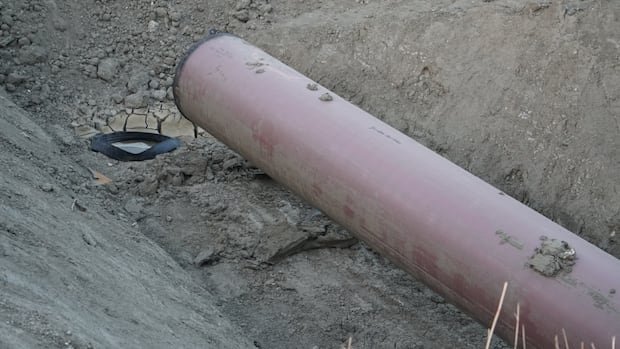After several months of Premier Danielle Smith’s commitment to securing a company willing to develop a new oil export pipeline, the Alberta government has decided to take on the project itself. This makes Smith the third consecutive Alberta premier to allocate taxpayer funds in an effort to boost oil exports from the province.
The decision has garnered mixed reactions from the oil industry, which desires a new pipeline but remains wary of government intervention. Numerous obstacles lie ahead for the proposal, including existing federal policies, the regulatory process, and the need for oil producers to make long-term commitments to utilize a new pipeline.
Smith recently announced that the provincial government will present its own project, with support from an advisory group comprising pipeline companies such as South Bow, Enbridge, and Trans Mountain. The government plans to invest $14 million to develop and submit the proposal to the federal Major Projects Office by spring, which will include outlining a potential route to the West Coast and estimating costs.
While the provincial government currently has no intentions of constructing or operating the new pipeline, the move has sparked both enthusiasm and skepticism within the industry. Robert Cooper from Acumen Capital Partners commended the initiative as a bold step towards economic progress, emphasizing the necessity of such actions.
Despite the industry’s desire for a new pipeline, companies are hesitant to invest due to restrictive federal policies that have hampered previous projects. Rafi Tahmazian, a retired energy portfolio manager, lauded Smith’s support for the industry but expressed reservations about direct government involvement, drawing parallels to the federal government’s acquisition of the Trans Mountain expansion in 2018.
With the completion of the Trans Mountain expansion, there is currently capacity for increased oil movement on export pipelines. However, forecasts indicate that by 2030, these pipelines will reach full capacity as oil production in Alberta continues to rise.
Smith’s pipeline proposal faces significant challenges, as developing an export pipeline entails substantial costs, complexities, and a lengthy timeline. Success will require substantial investments and a thorough de-risking of the project by the government to attract private capital.
In past years, Alberta made significant investments in the energy sector, including purchasing railcars and investing in the Keystone XL pipeline. However, these ventures faced setbacks, with the Keystone XL project ultimately being canceled by the U.S. administration, resulting in substantial financial losses for the province.
As Smith’s proposal progresses, it will encounter hurdles such as securing support from major oil producers and navigating opposition from communities and political leaders. The success of the project hinges on the government’s ability to address these challenges and garner widespread industry support.
